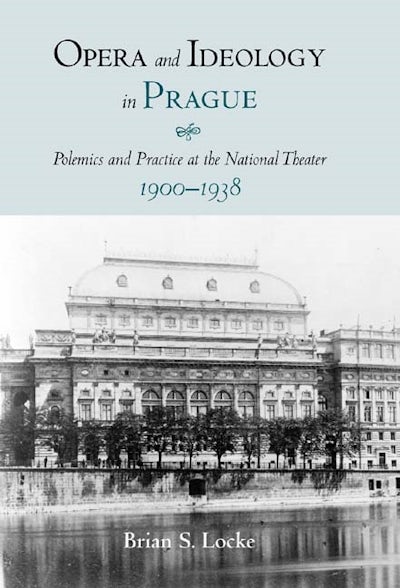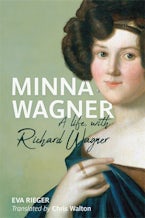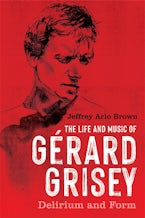
Title Details
458 Pages
22.8 x 15.2 cm
53 b/w, 8 line illus.
Series: Eastman Studies in Music
Series Vol. Number:
39
Imprint: University of Rochester Press
Opera and Ideology in Prague
Polemics and Practice at the National Theater, 1900-1938
- Description
- Contents
- Author
- Reviews
An overview of the history of the Prague musical community from 1900 until the end of democracy in 1938, with attention to polemics about "Czechness" and "modernism."
This study presents a history and analysis of the Prague musical community from 1900 until the end of democracy in 1938. Opera and Ideology in Prague not only narrates the fascinating history of a local musical community but also reveals much about music and culture in Europe.
The fin-de-siècle period was dominated by the musicologist Zdenek Nejedly's polemics regarding the competing "legacies" of Smetana and Dvorák and the merits of modernism.After Czech independence in 1918, a new generation of musicians accepted modernist foreign influences only with extreme hesitation.
The 1926 Prague premiere of Berg's opera Wozzeck and the ascendancy of a young groupof avant-garde composers changed the cultural climate entirely, providing new ground for the exploration of jazz, neo-classicism, quarter tones, and socialist music. As the Czechoslovak Republic drew to a close, a resurgence of nationalism appeared in the musical expressions of both Czechs and German-Bohemians.
The analyses of operas and tone poems by Novák, Ostrcil, Zich, Jeremiás, Hába, Kricka, and Suk provide a cross-section of musical life in early twentieth-century Prague, as well as a series of interpretations of Czech cultural identity. Populist endeavors such as jazz and neo-classicism represented some of the ways in which composers of the 1930s attempted to regain anaudience alienated by modernism: in this respect, the trends in Prague mirrored those of the rest of Europe.
Brian Locke is Assistant Professor of Music History at Western Illinois University, Macomb. He has written extensively on twentieth-century music, including Czech operatic and symphonic works and Alban Berg's Wozzeck.
This study presents a history and analysis of the Prague musical community from 1900 until the end of democracy in 1938. Opera and Ideology in Prague not only narrates the fascinating history of a local musical community but also reveals much about music and culture in Europe.
The fin-de-siècle period was dominated by the musicologist Zdenek Nejedly's polemics regarding the competing "legacies" of Smetana and Dvorák and the merits of modernism.After Czech independence in 1918, a new generation of musicians accepted modernist foreign influences only with extreme hesitation.
The 1926 Prague premiere of Berg's opera Wozzeck and the ascendancy of a young groupof avant-garde composers changed the cultural climate entirely, providing new ground for the exploration of jazz, neo-classicism, quarter tones, and socialist music. As the Czechoslovak Republic drew to a close, a resurgence of nationalism appeared in the musical expressions of both Czechs and German-Bohemians.
The analyses of operas and tone poems by Novák, Ostrcil, Zich, Jeremiás, Hába, Kricka, and Suk provide a cross-section of musical life in early twentieth-century Prague, as well as a series of interpretations of Czech cultural identity. Populist endeavors such as jazz and neo-classicism represented some of the ways in which composers of the 1930s attempted to regain anaudience alienated by modernism: in this respect, the trends in Prague mirrored those of the rest of Europe.
Brian Locke is Assistant Professor of Music History at Western Illinois University, Macomb. He has written extensively on twentieth-century music, including Czech operatic and symphonic works and Alban Berg's Wozzeck.
Introduction: Nationalism, Modernism, and the Social Responsibility of Art in Prague
Smetana, Hostinsky, and the Aesthetic Debates of the Nineteenth Century
Legacies, Ideologies, and Responsibilities: The Polemics of the Pre-Independence Years (1900-1918)
"Archetypes Who Live, Rejoice, and Suffer": Czech Opera in the Fin de Siecle
The Pathology of the New Society: Debates in the Early Years of the First Republic (1918-24)
Infinite Melody, Ruthless Polyphone: Czech Modernism in the Early Republic
"A Crisis of Modern Music or Audience?" Changing Attitudes to Cultural and Stylistic Pluralism (1925-30)
"I Have Rent My Soul in Two": Divergent Directions for Czech Opera in the Late 1920s
Heaven on Earth: Socialism, Jazz, and a New Aesthetic Focus (1930-38)
"A Sad Optimism, the Happiness of the Resigned": Extremes of Operatic Expression in the 1930s
The Ideological Debates of Prague Within a European Context
Smetana, Hostinsky, and the Aesthetic Debates of the Nineteenth Century
Legacies, Ideologies, and Responsibilities: The Polemics of the Pre-Independence Years (1900-1918)
"Archetypes Who Live, Rejoice, and Suffer": Czech Opera in the Fin de Siecle
The Pathology of the New Society: Debates in the Early Years of the First Republic (1918-24)
Infinite Melody, Ruthless Polyphone: Czech Modernism in the Early Republic
"A Crisis of Modern Music or Audience?" Changing Attitudes to Cultural and Stylistic Pluralism (1925-30)
"I Have Rent My Soul in Two": Divergent Directions for Czech Opera in the Late 1920s
Heaven on Earth: Socialism, Jazz, and a New Aesthetic Focus (1930-38)
"A Sad Optimism, the Happiness of the Resigned": Extremes of Operatic Expression in the 1930s
The Ideological Debates of Prague Within a European Context
"A most impressive achievement and a major work of scholarship of the period. There is nothing in any language that quite matches its range and depth." John Tyrrell, TWENTIETH-CENTURY MUSIC
"Meticulously detailed. . . . [Locke shows] where Czech Modernism fits into the European landscape. . . . Besides treating in great detail . . . the main aesthetic and ideological debates of the Prague musical community, Locke provides extensive description and analysis of nine works that played an important role in the formation of Czech Modernism [by Novak, Suk, and others]." Harlow Robinson, SLAVIC AND EAST EUROPEAN JOURNAL
"This excellent study connects historical opinion with the music and brings us closer to understanding the impact of critical reviews on the development of musical style in east central Europe. , Spring 2008" William Smialek, SLAVIC REVIEW
"At last we have a book that situates Prague properly at the forefront of the modernist music movement. Through a probing analysis of the heated press debates that occasioned the premieres of greater and lesser Czech operas, Brian Locke demonstrates that Prague, the amorphous capital of an amorphous nation, served as fertile ground for the cultivation of universal -- not provincial -- concepts of musical nationalism. The book greatly refines our understanding of the careers of Smetana, Dvorák, Janácek, and Martinu, while also documenting the astonishing impact of the music critic and politician Zdenek Nejedly on Czech culture. --" Simon Morrison, Associate Professor of Music, Princeton University
"This is truly a landmark book, filling a gap in our knowledge and understanding of early twentieth-century Czech music and culture, and, in the process, illuminating events in the rest of Europe and in America. The author relates this fascinating account with an engaging style that makes one eager to read on. The music (including a good number of in-depth analyses), the political intrigues, the main characters and events -- all are presented with clarity and style based on solid research. --" Timothy Cheek University of Michigan, author of Singing in Czech: A Guide to Czech Lyric Diction and Vocal Repertoire
Hardcover
9781580462280
October 2006
£120.00 / $145.00
Ebook (EPDF)
9781580466660
October 2006
£24.99 / $29.95
Title Details
458 Pages
2.28 x 1.52 cm
53 b/w, 8 line illus.
Series: Eastman Studies in Music
Series Vol. Number:
39
Imprint: University of Rochester Press












